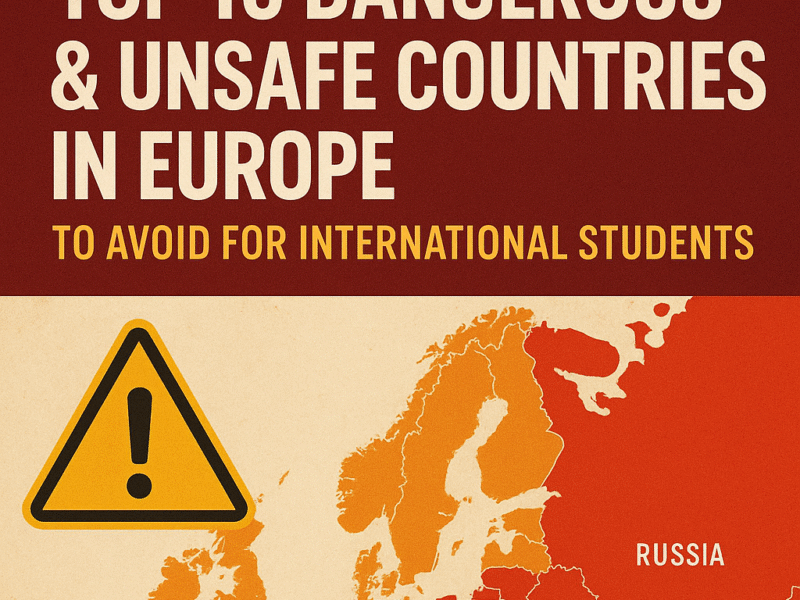Are you an international professional dreaming of working remotely for a European company? You’re not alone! Europe has become a hotspot for remote work, with countries like Denmark, the Netherlands, and Germany leading the way in the Global Remote Work Index. The continent offers a strong economy, excellent quality of life, and a growing demand for skilled professionals in fields like tech, marketing, and customer support. But landing a remote job in Europe as an international professional comes with its own set of challenges—like navigating time zones, legal requirements, and competition.
In this guide, I’ll walk you through a step-by-step process to find remote jobs in Europe, tailored specifically for international professionals. From understanding the job market to preparing your application and ensuring long-term success, I’ve got you covered. Let’s dive in!
Understanding the Remote Job Landscape in Europe
Europe is a prime destination for remote work, and for good reason. The continent dominates the remote work scene, with all top 10 countries in the Global Remote Work Index being European. Countries like Denmark, the Netherlands, and Germany boast fast internet, strong social benefits, and a culture that embraces flexible work arrangements. Since the COVID-19 pandemic, remote work has skyrocketed, and European companies are increasingly open to hiring international talent to fill skill gaps.
Why Choose Europe for Remote Work?
- Top Infrastructure: Europe offers some of the best internet speeds and digital infrastructure, making remote work seamless.
- High Demand for Skills: Fields like software development, digital marketing, and data analysis are in high demand.
- Quality of Life: European companies often provide excellent benefits, even for remote workers, such as paid leave and health support.
Popular Industries for Remote Jobs
Based on current trends, here are the top industries hiring remote workers in Europe:
- Tech: Software developers, UI/UX designers, and cybersecurity experts are highly sought after.
- Marketing: Digital marketing specialists, SEO experts, and content creators are in demand.
- Customer Support: Multilingual professionals for customer service roles are a big need.
- Finance and Data: Data analysts and financial consultants are increasingly hired remotely.
ALSO SEE: TOP 10 HIGH-PAYING JOBS IN EUROPE FOR FOREIGNERS
Challenges for International Professionals
While the opportunities are exciting, there are hurdles to be aware of:
- Time Zone Differences: If you’re in Asia or the Americas, aligning with European hours can be tricky.
- Legal Restrictions: Some companies may require you to be in a specific region, even for remote roles.
- Competition: Europe attracts talent from around the world, so standing out is key.
Preparing Yourself for the European Remote Job Market
Before you start applying, you need to get yourself ready to compete in the European job market. This means aligning your skills, polishing your profile, and showing employers you’re a great fit for remote work.
Align Your Skills with Demand
European companies are looking for specific skills, especially in tech and digital fields. If you’re a software developer, for example, knowing languages like Python or JavaScript can give you an edge. If you’re in marketing, expertise in SEO or social media management is a plus. Being multilingual is also a huge advantage, as many companies serve diverse markets across Europe.
If your skills don’t quite match, consider upskilling. Platforms like Coursera, Udemy, or LinkedIn Learning offer courses in high-demand areas like coding, data analysis, or digital marketing.
Tailor Your Profile for Remote Work
Your resume and cover letter need to scream “I’m perfect for remote work!” Here’s how to do it:
- Highlight Remote Experience: If you’ve worked remotely before, make it clear. Mention tools you’ve used, like Slack, Zoom, or Trello.
- Showcase Adaptability: European employers value professionals who can adapt to their work culture. Mention any experience working with international teams.
- Focus on Results: Use numbers to show your impact (e.g., “Increased website traffic by 30% through SEO strategies”).
Be Flexible with Time Zones
One of the biggest concerns for European employers hiring internationally is time zone alignment. If you’re in a drastically different time zone, like India or the U.S., be prepared to work European hours. Mention in your application that you’re willing to adjust your schedule—this small detail can make a big difference.
Where to Find Remote Jobs in Europe
Now that you’re prepared, let’s talk about where to find remote jobs in Europe. There are plenty of platforms and strategies to help you land the perfect role.
Top Job Platforms for Remote Work
Here are some of the best websites to find remote jobs in Europe:
- EU Remote Jobs (euremotejobs.com): A dedicated platform for remote roles across Europe, with a focus on tech and marketing.
- We Work Remotely (weworkremotely.com): One of the largest remote job boards, featuring roles from European companies.
- FlexJobs (flexjobs.com): A curated job board with remote and flexible roles, including many in Europe.
- Jobicy (jobicy.com): A newer platform with remote job listings, often featuring European opportunities.
- Remote OK (remoteok.com): A global remote job board with filters for European roles.
Niche Platforms for Specific Industries
If you’re in a specialized field, try these platforms:
- Stack Overflow: Great for tech professionals, with a job board that includes remote roles.
- LinkedIn: Use LinkedIn to search for remote jobs and connect with European recruiters.
- Upwork: While more freelance-focused, Upwork can help you find long-term remote contracts with European clients.
Research Companies Directly
Some companies are known for hiring remote workers internationally. Check the career pages of companies like:
- GitLab: A fully remote company with a strong presence in Europe.
- Automattic: The company behind WordPress, known for its remote-first culture.
- Spotify: Often hires remote talent in tech and marketing roles.
Application Strategies for Success
Finding a job is only half the battle—now you need to land it. Here’s how to make your application stand out and ace the interview process.
Customize Your Applications
Generic applications won’t cut it in a competitive market. Here’s how to tailor yours:
- Match the Job Description: Use keywords from the job posting in your resume and cover letter.
- Highlight Remote Skills: Mention your experience with remote tools and your ability to work independently.
- Show Cultural Fit: Research the company and mention why you’re excited to work for them specifically.
Network Like a Pro
Networking can open doors to opportunities that aren’t even listed. Here’s how to do it:
LinkedIn: Connect with recruiters and employees at European companies. Share posts about your skills and remote work experience.
- Online Communities: Join remote work communities like Nomad List or Reddit’s r/digitalnomad to connect with others in the space.
- Virtual Events: Attend industry webinars or virtual job fairs to meet potential employers.
Ace Your Virtual Interview
Most remote jobs involve a virtual interview process. Here’s how to prepare:
- Set Up Your Space: Ensure you have a quiet, professional background with good lighting.
- Test Your Tech: Check your internet connection, microphone, and camera ahead of time.
- Practice Common Questions: Be ready to answer questions like, “How do you stay productive while working remotely?” or “How will you manage time zone differences?”
Navigating Legal and Practical Considerations
Before you accept a remote job in Europe, there are a few legal and practical things to keep in mind.
Work Permits and Visas
The good news? Most remote jobs don’t require you to relocate to Europe, so you likely won’t need a work permit or visa. However, some companies may have location restrictions, requiring you to be in a specific region (e.g., the EU or a country with a specific tax agreement). Always check the job listing for any such requirements.
Taxes and Contracts
Remote work often means you’ll be hired as a contractor rather than an employee. Here’s what to know:
- Contractor vs. Employee: As a contractor, you’re responsible for your own taxes and benefits. As an employee, the company may handle this for you.
- Tax Implications: You’ll need to pay taxes in your home country, but some European countries may also tax your income. Consult a tax professional to avoid surprises.
- Contracts: Read your contract carefully to understand payment terms, working hours, and termination clauses.
Tech Setup for Remote Work
To succeed in a remote role, you need the right setup:
- Reliable Internet: Invest in a high-speed connection to avoid disruptions.
- Tools: Be familiar with tools like Zoom, Slack, and Google Workspace, which are commonly used by European companies.
- Workspace: Create a quiet, distraction-free space to work in.
Conclusion
Finding a remote job in Europe as an international professional is absolutely achievable with the right approach. Start by understanding the job market, preparing your skills and profile, and using the best platforms to find opportunities.
Tailor your applications, network strategically, and be ready to navigate legal and practical considerations. Once you land the job, focus on building relationships and staying adaptable to ensure long-term success.
Ready to start your journey? Head to platforms like EU Remote Jobs, We Work Remotely, or FlexJobs and begin applying today. I’d love to hear about your experiences—drop a comment below and let me know how your job search goes!





